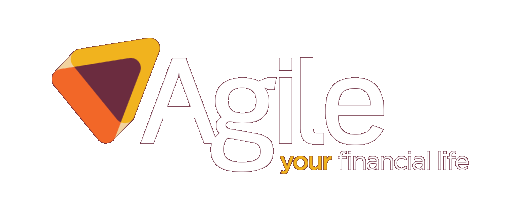While economies continue to recover from the effects of the pandemic, there are signs that the pace of growth is beginning to slow.
According to the Organisation for Economic Co-operation and Development (OECD), the recovery of the world’s major economies is losing momentum. The organisation said consumers remain reluctant to eat out, visit attractions, and shop like they did pre-pandemic. As a result, growth figures are expected to slow over the coming months.
Businesses around the world are also being hampered by supply and stock issues, with many struggling to access the materials and skills they need to maximise operations.
Globally, the situation in Afghanistan is also impacting markets. As of 30 August 2021, the last American military plane departed from Afghanistan, ending the 20-year long Afghanistan war. However, a huge amount of uncertainty remains, and the situation could affect markets for some time.
UK
The National Institute of Economic and Social Research has revised UK economy forecasts upwards. The organisation now expects the UK to grow by 6.8% in 2021, an increase of 1.1% on the forecast given in May, and by 5.3% in 2022. However, the figures will still mean the UK economy is behind where it would have been expected to be if the pandemic had not occurred.
One of the challenges investors could now face is rising inflation. In the latest report from the Bank of England’s Monetary Policy Committee, inflation was forecast to rise significantly. The Consumer Price Index (CPI), which measures the rising cost of living, is expected to increase by around 4% in the fourth quarter of 2021. This is double the Bank’s 2% target. The committee has not taken any action yet, but acknowledged that it could in the coming months to stay on target in the medium term.
UK wage growth also jumped 8.8% in June, the highest since records began in 2001. It could mean interest rates, which have been low for over a decade, begin to rise sooner than expected.
From a business perspective, shortages are causing problems. Brexit combined with the impact of Covid-19, including staff self-isolating, is affecting business operations.
A survey conducted by the Institute of Directors found that 44% of businesses are currently experiencing staff shortages. 65% attributed this to the UK’s long-term skills gap. However, 4 in 10 said they are struggling with a lack of workers from the EU, and 2 in 10 said self-isolation was having an impact.
The latest Industrial Trends Survey from the Confederation of British Industry also found UK factories are being hit by the worst stock shortage since records began in 1977. Businesses are struggling to access electronics and plastic products, in particular.
Other headline figures this month include:
- UK factory output remains in growth mode. According to IHS Markit data, the PMI (Purchasing Managers Index) for July was 60.6, where a reading over 50 indicates growth. The reading is below May’s record high, but is still positive.
- The service sector is also growing with a reading of 59.6. Again, it’s fallen from 62.4 when compared to a month earlier, but remains in growth territory. Shortages, in both staff and supplies, are one of the reasons for the fall.
- Overall, the UK PMI fell from 59.3 to 55.3 in July. It’s the lowest reading since February 2021 and worse than expected. However, it signals the UK economy is still growing.
Europe
IHS PMI data shows that business activity in the eurozone remains high, reaching an almost 15-year high.
Factory output, in particular, remains high. The PMI for July was 62.8, well above the 50 benchmark that signals growth. In line with rising demand, Eurostat data reveals factories are increasing their prices, which could signal rising inflation. In June, factory prices increased by 10.2% year-on-year.
Despite positive economic data overall, research group Sentix find investor morale is falling. A survey found investors are fretting about economic prospects and the risk of new lockdowns after 18 months of uncertainty.
US
Figures from the US show signs of a strong recovery, but business confidence is weakening.
US manufacturing has now risen above pre-pandemic levels after output increased by 1.4% in July. US job openings have also reached a record high. According to the US Bureau of Labour Statistics, there were over 10 million job openings at the end of June – 590,000 more than May.
The job opening figures suggest businesses are reopening, and perhaps expanding. But it also highlights that some firms are struggling to attract workers to fill vacant roles. The National Federation of Businesses found that confidence is falling, with labour shortages playing a key role in this sentiment.
Tesla stocks have experienced high growth in the last year as pioneers of self-driving technology. But after a series of crashes, Tesla’s autopilot feature is being investigated by US regulators. The results could impact not only Tesla, but other businesses in the industry.
Asia
China continues to recover from the impact of Covid-19. However, industrial output hasn’t been as strong as expected. Year-on-year industrial output increased by 6.4% in July, according to the country’s National Bureau of Statistics. The figure is below July 2020’s figure.
However, the PMI data for China’s recovery sector is accelerating. The PMI in July was 54.9, up from 50.3 in the previous month. While positive, there are concerns that the spread of the delta variant of Covid-19 could affect the recovery.
Please note: This blog is for general information only and does not constitute advice. The information is aimed at retail clients only.
The value of your investment can go down as well as up and you may not get back the full amount you invested. Past performance is not a reliable indicator of future performance.









